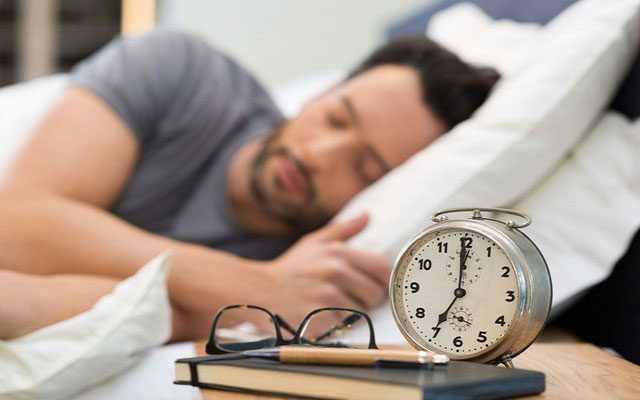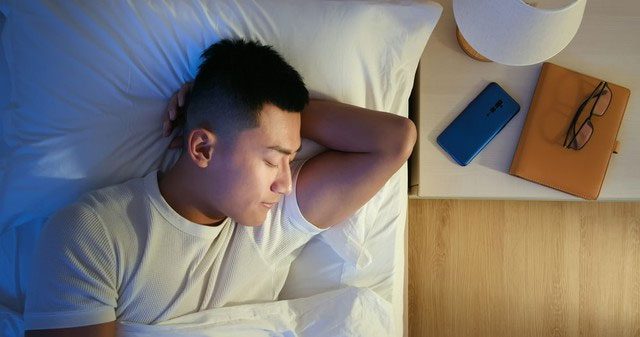In today’s fast-paced modern life, a good night’s sleep has become a luxury for many.
The Ideal Sleep Duration for Different Age Groups
- 1. Sleeping 8 Hours a Night, Depending on the Individual
- 2. After Staying Up Late, Is It Enough to Sleep 8 Hours to Catch Up?
- 3. Is Sleeping Too Much Worse Than Staying Up Late?
- 4. Are Dreaming and Teeth Grinding During Sleep Signs of Illness?
- 5. How to Sleep Better?
- 5.1. Maintain a Regular Schedule
- 5.2. Create a Comfortable Sleep Environment
- 5.3. Limit Caffeine and Alcohol Intake
- 5.4. Avoid Eating Too Much or Going to Bed Hungry
- 5.5. Engage in Moderate Physical Activity
- 5.6. Manage Stress and Anxiety
- 5.7. Maintain a Scientific Work and Rest Routine
- 5.8. Establish a Pre-Sleep Routine
It is unclear when the “8-hour sleep theory” became widely circulated, but it seems to have turned into a gold standard for measuring sleep quality.
However, is this notion truly scientific? Is sleeping too much really worse for health than staying up late?
1. Sleeping 8 Hours a Night, Depending on the Individual
The term “8 hours of sleep” actually originated during the Industrial Revolution.
At that time, the working and living rhythms of people underwent significant changes. To adapt to this new lifestyle, experts and scholars proposed the idea of “8 hours of work, 8 hours of leisure, and 8 hours of sleep.”
However, this does not mean that everyone must rigidly adhere to this standard.
In reality, sleep needs vary from person to person and are influenced by factors such as age, health, and lifestyle.
Research from the University of California, San Diego School of Pharmacy, and the American Cancer Society shows that individuals who sleep between 6 to 8 hours a day have the lowest mortality rates, particularly those who sleep 7 hours.
Therefore, it is advisable to maintain sleep between 6 to 8 hours, but not excessively long.
Of course, this does not mean that sleep itself is harmful, but excessive sleep may reflect underlying health issues or poor lifestyle habits.
Thus, one should not blindly follow the so-called 8-hour sleep rule; it is important to pay attention to the body’s needs, such as feelings of fatigue or weakness, and adjust sleep duration accordingly.

Each person’s sleep needs are different.
2. After Staying Up Late, Is It Enough to Sleep 8 Hours to Catch Up?
Staying up late has likely become a common occurrence in modern life, but many believe that simply sleeping 8 hours afterward can compensate for the physical toll of staying up late.
However, this thinking is incorrect.
Staying up late can disrupt the body’s biological clock and affect the quality and depth of sleep.
This is because the body’s biological clock is formed based on changes in the natural environment throughout the day. Prolonged late nights disrupt this pattern and can lead to various bodily function issues.
Even if you catch up on sleep afterward, you cannot fully compensate for the health damage caused by staying up late.
Prolonged late nights can lead to a range of health problems, such as decreased immunity, memory loss, and mood swings.
Therefore, we should strive to avoid staying up late and maintain a regular schedule.
If you occasionally stay up late, you should adjust your schedule to prevent prolonged and frequent late nights while restoring physical well-being through appropriate rest and exercise.
While getting enough sleep, pay attention to your diet and exercise to maintain a healthy state.
3. Is Sleeping Too Much Worse Than Staying Up Late?
It is true that sleeping too long can cause some health issues, but that does not mean sleeping excessively is worse than staying up late.
The important factors are the quality and consistency of sleep. If sleep duration is excessive and of poor quality, it can lead to issues such as reduced bodily functions and metabolic disorders.
Many great figures in history have “started their mornings by noon,” and there are also many who sleep only a few hours a day but remain energetic.
Thus, we do not need to be overly strict about sleep duration; we should pay attention to our feelings and find the sleep state that suits us best.
It is important to note that the required sleep duration may vary among individuals of different ages and physical conditions.
For instance, infants and children require longer sleep durations, while older adults may need less sleep.
Therefore, when planning sleep, do not blindly follow trends or what others say, but analyze the specific issues in detail.

The required sleep duration can vary among individuals of different ages.
4. Are Dreaming and Teeth Grinding During Sleep Signs of Illness?
Many people experience dreaming and teeth grinding while sleeping, which are actually normal physiological phenomena.
Dreaming is an indication of the brain’s process of processing information and consolidating memories during sleep, representing normal brain activity that helps us process daily information and emotions.
Teeth grinding, or bruxism, is an involuntary grinding of teeth during sleep, which may relate to factors such as poor bite, mental stress, and is a short-term reaction of the body.
These phenomena are not necessarily signs of illness, but if they occur frequently and affect sleep quality, attention is required.
Regarding excessive dreaming, we can try adjusting the sleep environment to maintain a quiet and comfortable atmosphere, reducing psychological stress for easier sleep.
For issues related to teeth grinding, you may consult a dentist or psychologist for more professional solutions.
In summary, we need not panic or worry excessively about these sleep disturbances; everyone has their bad sleep habits…
5. How to Sleep Better?
If you want to improve your sleep quality, you can start with the following aspects:
5.1. Maintain a Regular Schedule
Try to go to bed and wake up at the same time every day to help regulate your body’s biological clock and adapt to a stable sleep pattern.
You can sleep a bit more on weekends, but not too much to avoid affecting your energy on Monday.
5.2. Create a Comfortable Sleep Environment
Ensure your bedroom is quiet, dark, and comfortable.
Use tools like curtains, earplugs, and eye masks to reduce disruptive noise and light.
Choose a mattress and pillows that suit you and ensure they provide good support and comfort.
5.3. Limit Caffeine and Alcohol Intake
Avoid consuming caffeinated beverages such as coffee, tea, and cola before bedtime.
Caffeine is a stimulant and can interfere with your sleep.
Similarly, alcohol can disrupt sleep quality, so it’s best to avoid drinking alcohol before bed.
5.4. Avoid Eating Too Much or Going to Bed Hungry
Avoid large meals within a few hours before bedtime, especially spicy, fatty, or sugary foods.
Additionally, don’t go to bed on an empty stomach, as hunger can make it difficult to sleep.
Having light snacks or foods, such as fruits, yogurt, or whole-grain crackers, can help provide energy and promote sleep.

Don’t go to bed hungry, as hunger can make it difficult to sleep. (Illustrative image).
5.5. Engage in Moderate Physical Activity
Appropriate physical activity during the day, such as walking, jogging, swimming, etc., can help burn energy, reduce stress, and promote sleep at night.
However, avoid intense exercise before bedtime, as it can overly stimulate the body and make it difficult to fall asleep.
5.6. Manage Stress and Anxiety
Learning to manage and reduce stress is crucial for improving sleep quality.
Find ways that help you relax and alleviate stress, such as meditation, breathing exercises, yoga, or connecting with friends and family.
If you are feeling anxious or having trouble sleeping, try deep breathing, practicing muscle relaxation exercises, or listening to calming music to alleviate stress.
5.7. Maintain a Scientific Work and Rest Routine
Even when busy with work, make sure you allocate enough time each day for rest and recreation.
You can also use short lunch breaks to meditate, read a book, or simply relax to help recharge your energy.
5.8. Establish a Bedtime Routine
Creating a bedtime routine helps you unwind and fall asleep more easily.
This could involve a gentle evening skincare routine, wearing comfortable pajamas, dimming the lights, or lighting scented candles, etc.
These activities can help you establish a pre-sleep routine and signal to your body that sleep is approaching.
These measures can improve sleep quality, allowing us to regain a sense of order in our busy lives and truly relax both body and mind.



















































